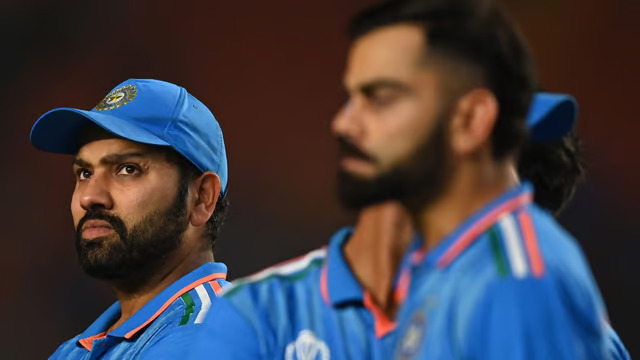
There will be millions who recall the irate reaction to India’s first-round World Cup exit in 2007. Players’ homes were attacked, sections of the media went into vitriolic meltdown, and some fans abandoned the game they loved. What isn’t perhaps remembered 17 years on is how it could have been so much worse.
The first team to push India towards the trap door was Bangladesh, at Trinidad’s Queen’s Park Oval on March 17. Normally, that would have been the tournament’s seismic event. But on that same afternoon – St. Patrick’s Day, no less – across the water in Jamaica, an Irish side made up mostly of part-time players dumped Pakistan out of the competition.
Less than 24 hours later, the news was flashed around the world that Bob Woolmer, Pakistan’s coach, had been found dead in mysterious circumstances in his room at the Pegasus Hotel in Kingston. Almost immediately, the vulture-picking of India’s (non)-performance was put on hold as reporters rushed to Jamaica.
Greg Chappell, India’s coach who had always polarized opinion, would leave the job soon after the defeat to Sri Lanka in the final group game, but by then, the heat was nothing comparable to what it might have been if not for Woolmer’s tragic passing. Even the most rabid news channels (sort of) understand the need for greater sensitivity once it became clear that Woolmer had probably succumbed to the intolerable pressures of the job.
That dismal campaign would have far-reaching consequences though. With no cricket in April, the BCCI were forced to organise their first T20 tournament on home soil. Months later, an experimental and hastily cobbled-together side led by MS Dhoni would head to the southern Cape and win the inaugural World Twenty20. By April 2008, 13 months and a day after Mashrafe Mortaza had plunged the dagger into India’s hearts, the Indian Premier League (IPL) had come into being.
#T20WorldCup Updates
The Indian cricket team will be having an optional training session at the Cantiague Park ahead of Wednesday’s game against Ireland.
RevSportz correspondents @debasissen and @ishaanshahane11 share all updates from New York.@ThumsUpOfficial @BCCI #INDvsIRE… pic.twitter.com/kq6bDfRM8I
— RevSportz (@RevSportz) June 4, 2024
That same IPL, the pride of the BCCI bosses, was the scapegoat when India starred in the Pathetics of the Caribbean – Part 2 at the World T20 in 2010. As was the case a year earlier in England, they exited the competition without winning a single Super Eights game. Worse still, there was a brawl with fans at a pub in Saint Lucia, and stinging remarks from Gary Kirsten, the coach, about the poor fitness of several key players.
Rohit Sharma, then one of the targets of Kirsten’s ire and now the captain, and Ravindra Jadeja are the only survivors from that long-ago tournament. In the intervening years, the IPL has established itself as the sport’s most lucrative property, and the likes of Rohit and Jadeja are stars and millionaires many times over.
By some estimates, more than 80 per cent of the money driving this tournament has come from Indian companies. While that should give pointers as to Indian cricket’s rude financial health, it’s also a warning. A monopoly is never healthy, in sport, business or politics. It breeds complacency and bad practices.
There was a time when the mobile phone meant only the Nokia ‘brick’, such was the Finnish company’s dominance of the market. These days, millions of phone users have never even heard of Nokia. The world of sport has seen mighty Italy, four times champions, fail to qualify for the last two football World Cups. Pakistan’s once-legendary field hockey team last played at the Olympic Games in 2012. If you stand still, the creepers and vines eventually consume you.
And make no mistake, India is no longer a one-sport nation. The extraordinary levels of interest in Sunil Chhetri’s farewell game for the football team, the hockey side’s bronze in Tokyo and the Neeraj Chopra phenomenon in track and field are testament to that. Millions of kids have also been inspired by PV Sindhu’s feats to pick up a badminton racquet.
Cricket’s popularity is in no immediate danger, but after a decade of failures on the world stage, fans’ patience has worn wafer-thin. Each time a player turns it on during the IPL, the murmurs start – ‘Why can’t he do it in an India shirt?’ Winning isn’t everything, and coaches like Rahul Dravid are correct to put the focus on processes being followed, but at the end of the day, fans crave glory. Ticking every box in qualification and then falling flat in the knockouts simply won’t wash any more.
This World Cup isn’t a must-win for India, but a third consecutive Caribbean failure would be a major setback, especially with the team on the threshold of major transition. Most sporting legacies and political dynasties crumbled because of hubris. That’s the main lesson India need to keep in mind when they step out on to the park against Ireland.




